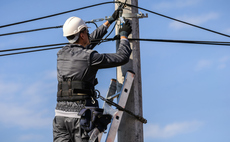Wessex Water cites commercial and technical reasons for dropping sewer-based FTTH rollout, but project will complete using other methods
Wessex Water cites technical reasons and commercial reward for sewer-based FTTH project A project to deliver optical fibre-based broadband connections through the sewers in the south coast town o...
To continue reading this article...
Join Computing
- Unlimited access to real-time news, analysis and opinion from the technology industry
- Receive important and breaking news in our daily newsletter
- Be the first to hear about our events and awards programmes
- Join live member only interviews with IT leaders at the ‘IT Lounge’; your chance to ask your burning tech questions and have them answered
- Access to the Computing Delta hub providing market intelligence and research
- Receive our members-only newsletter with exclusive opinion pieces from senior IT Leaders



















